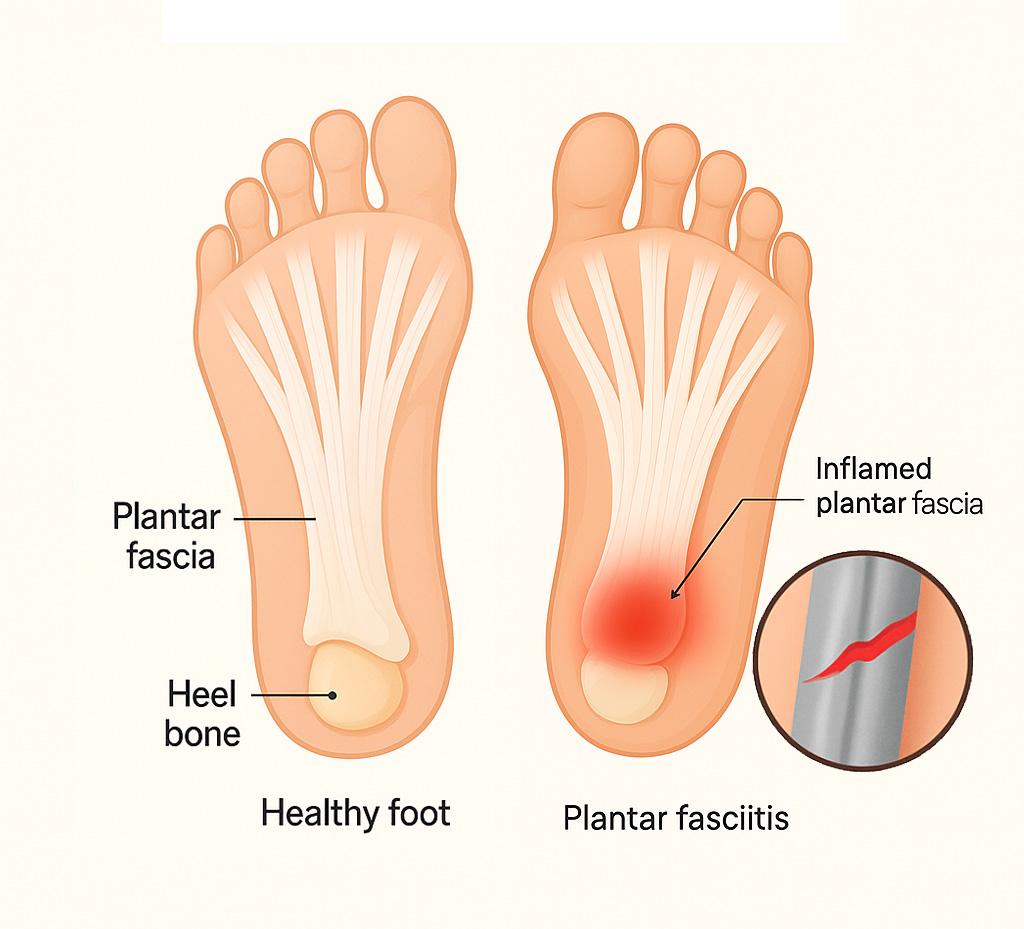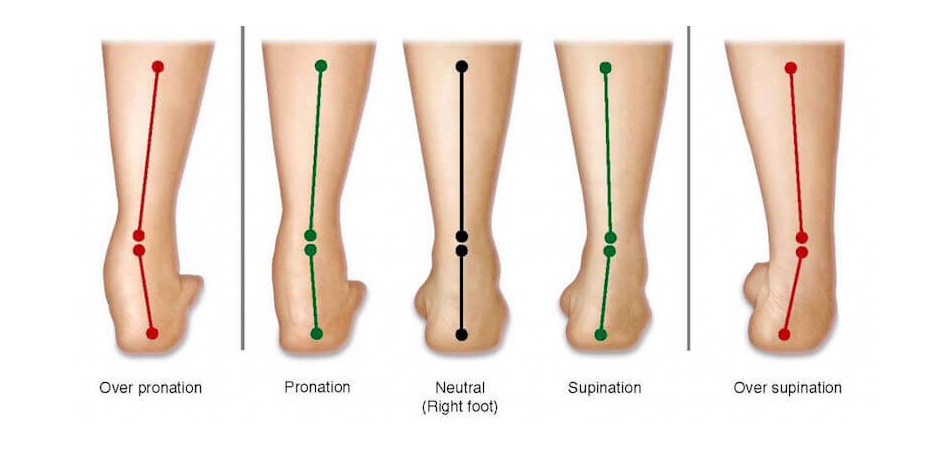Plantar fasciitis is an inflammation of the plantar fascia—a thick band of tissue that runs across the bottom of your foot, connecting your heel bone to your toes. This strong, fibrous ligament supports the arch of your foot and absorbs the stresses we place on our feet daily. When too much strain damages or tears the plantar fascia, inflammation and pain result.

Plantar fasciitis develops when the plantar fascia experiences excessive strain and stress, leading to small tears and inflammation. Several factors can contribute to this condition:
At Denton Foot and Ankle Surgery, our expert podiatrists perform a thorough evaluation to accurately diagnose plantar fasciitis and rule out other potential causes of heel pain. Our diagnostic process typically includes:
We believe in a personalized approach to treating plantar fasciitis. Our Denton foot specialists develop custom treatment plans based on the severity of your condition, lifestyle needs, and overall health. Most patients respond well to conservative treatments without requiring surgery.

While most plantar fasciitis cases resolve with conservative treatment, some patients with persistent symptoms may benefit from surgical intervention. Our skilled foot surgeons specialize in:
This approach prioritizes preserving the structural integrity of your foot. We rarely perform plantar fascial release (cutting the ligament) as this can destabilize the foot and lead to future complications.
Surgery is typically considered only after conservative treatments have been tried for 6-12 months without significant improvement.
Most patients with plantar fasciitis respond well to treatment, though recovery time varies depending on the severity of your condition and your commitment to the treatment plan. Here’s what you can typically expect:
With proper treatment and preventive measures, most patients can return to normal activities without significant pain. However, staying consistent with your treatment plan and following through with recommended lifestyle modifications is essential for successful recovery
Once your plantar fasciitis has improved, our Denton podiatrists will help you prevent future flare-ups with these strategies:
Our specialized team offers several advantages for patients seeking plantar fasciitis treatment in the Denton and DFW area:
With proper treatment and preventive measures, most patients can return to normal activities without significant pain. However, staying consistent with your treatment plan and following through with recommended lifestyle modifications is essential for successful recovery
Most patients see significant improvement within 6-12 weeks with proper treatment. However, complete healing can take 6-12 months for more severe cases. Consistency with your treatment plan is key to faster recovery.
Surgery is rarely needed for plantar fasciitis. Approximately 90% of patients improve with conservative treatments. Surgery is typically only considered after 6-12 months of non-surgical approaches that haven’t provided relief.
Yes, but modifications are often necessary. Low-impact activities like swimming, cycling, or using an elliptical machine are usually recommended while recovering. Your podiatrist will provide specific guidance based on your condition.
Custom orthotics are designed specifically for your foot structure and gait pattern, providing superior support and correction compared to generic inserts. For plantar fasciitis, the customized approach typically yields better long-term results.
While heel spurs and plantar fasciitis often occur together, they are different conditions. A heel spur is a bony growth, while plantar fasciitis is inflammation of the plantar fascia ligament. Many people have heel spurs without experiencing any pain.
You can help manage pain with regular ice application, stretching exercises, wearing supportive shoes, and temporarily reducing activities that aggravate symptoms. However, professional treatment is recommended for proper diagnosis and faster recovery.
Don’t let plantar fasciitis pain keep you from enjoying your daily activities. Our Denton foot and ankle specialists are ready to help you find relief and develop a customized treatment plan for your specific needs.